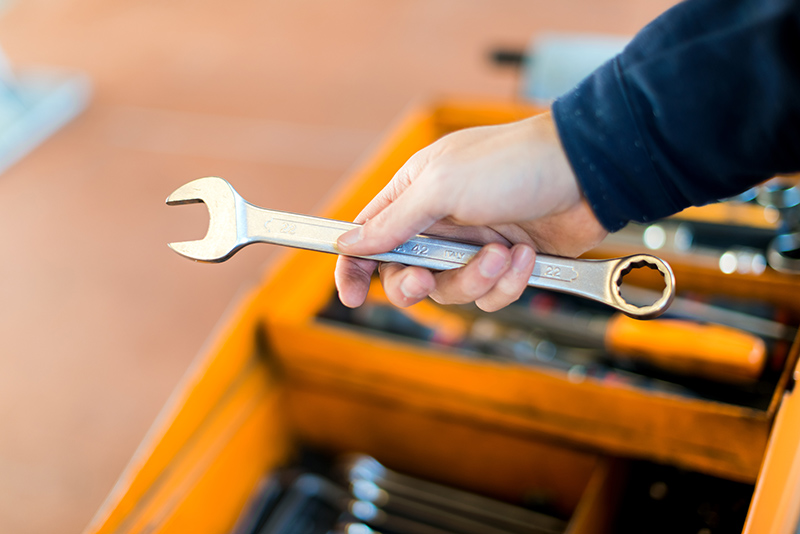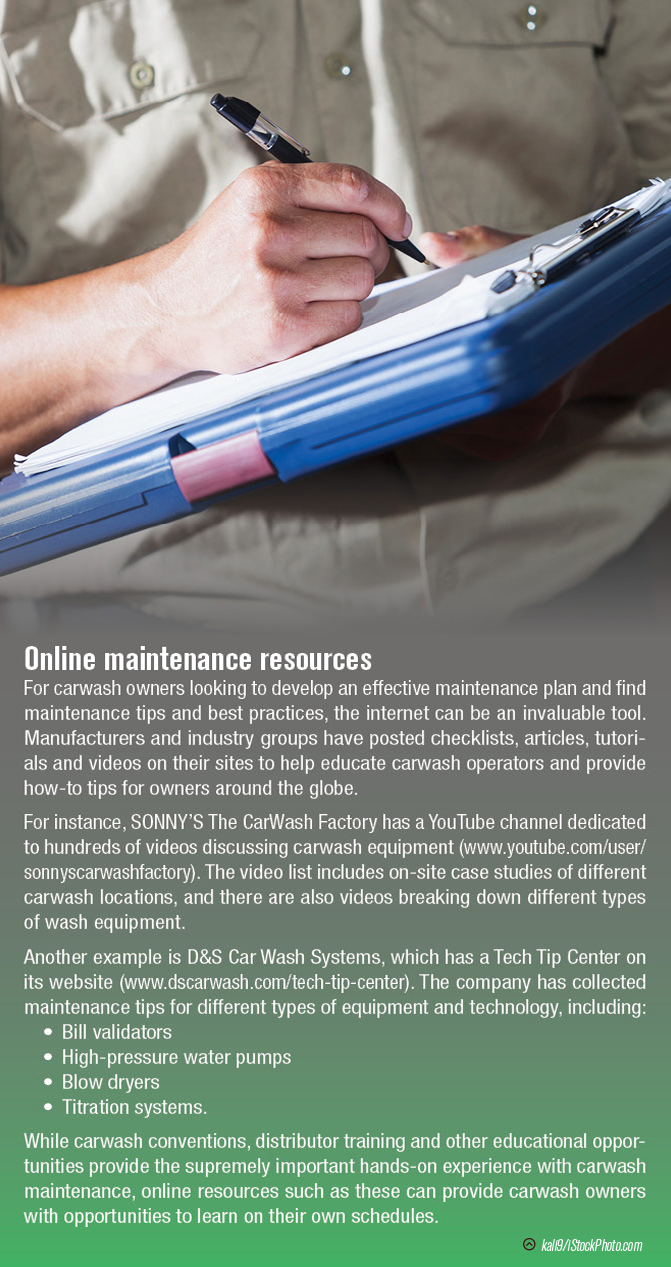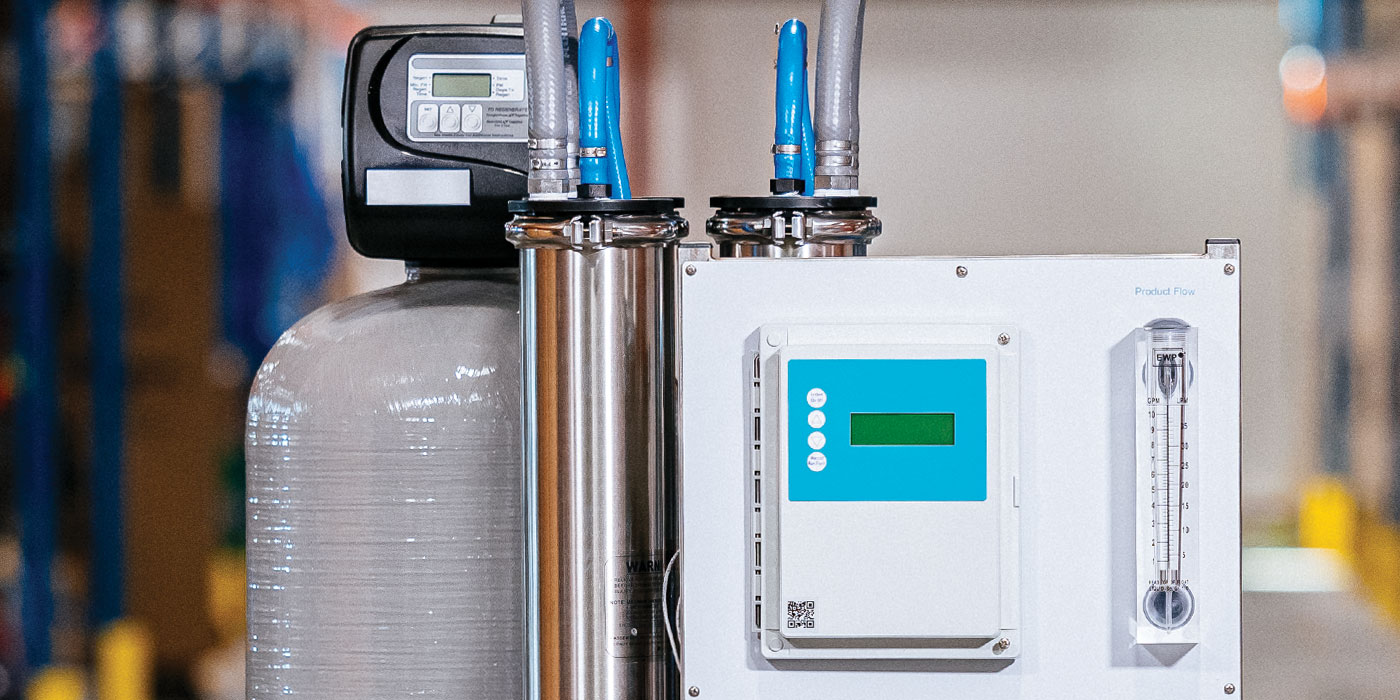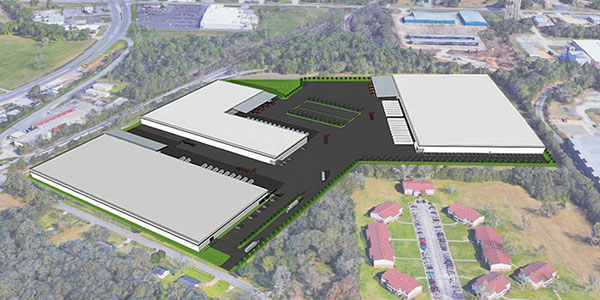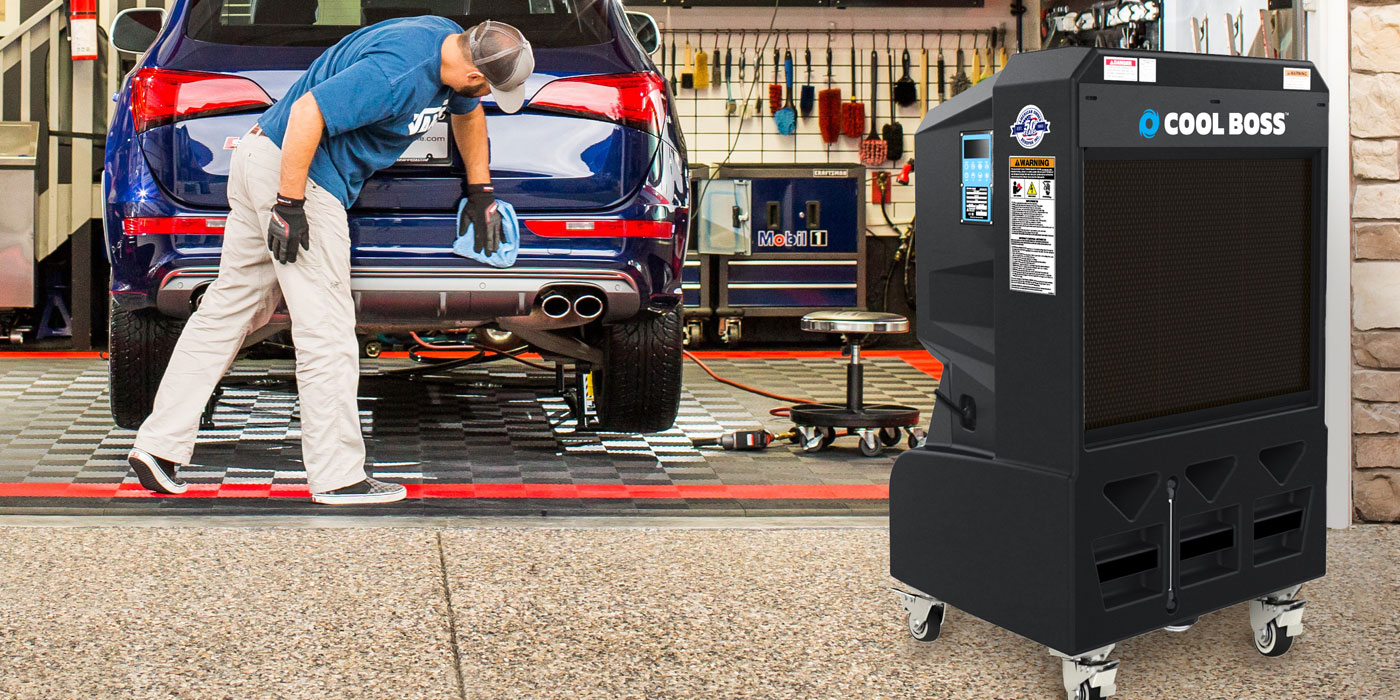For small business owners, there really are not enough hours in the typical workday. Owners often work long hours seven days a week with limited staff as they strive to meet revenue goals. Unforeseen operational problems, market changes and other challenges can leave owners struggling just to meet daily customer demands. Responsibilities beyond opening the doors, serving every customer and ensuring site safety may fall by the wayside during the busiest times.
In the carwash market, one of the most detrimental responsibilities operators can postpone is scheduled site and equipment maintenance. The daily hustle and bustle of running a busy carwash makes finding the time to complete regular preventative maintenance tasks a tall order. And for owners growing their operations with new locations, the problem increases exponentially as new wash locations are added.
Thankfully, technology experts stand ready to provide carwash operators with best practices for the most effective preventative maintenance steps. When performed thoroughly and regularly, a maintenance program offers many advantages for time-crunched carwash owners. The upkeep effectively prevents downtime and increases operational efficiencies. In the end, knowing the processes and frequency for these tasks will save savvy operators both time and money and provide peace of mind during a wash’s busiest days.
Dangerous downtime
Downtime is a huge threat to all carwash locations for a number of reasons. If a normally busy carwash is closed due to equipment issues — even for a short amount of time — the revenue losses can easily climb into thousands of dollars. To this end, knowledgeable carwash operators have long sought to take every step possible to prevent this costly scenario.
Robert Andre, vice president of training and education with SONNY’S The CarWash Factory, notes that the effects of downtime go far beyond carwash revenue. Downtime also damages a business’ reputation. If a carwash is closed due to maintenance issues and equipment problems, the customer needs a clean vehicle regardless. What if the customer goes somewhere else, and he or she actually likes the competition better? In this scenario, the cost is more than just an immediate loss of sales.
“When preventive maintenance is done properly, it allows owners to be proactive instead of reactive,” Andre says. “I find a lot of carwash owners and operators will always try to fix problems as they occur. If you have a proper preventive maintenance program with daily, weekly and monthly checks, you can stay on top of the issues and prevent them.” Of course, there will be some issues an operator cannot stop with maintenance, but the large majority can be prevented.
Related: Infographic: 7 maintenance tips for carwash equipment
David Dougherty, senior product manager for in-bay automatics with PDQ Manufacturing Inc., explains that a carwash is really no different than a vehicle. If it is neglected over time, at some point the lack of maintenance will catch up with an owner and set a business back. Typically, and unfortunately, these setbacks can happen at the worst time for an owner.
Though scheduled downtime may be required to complete maintenance tasks, it can help prevent costly unscheduled downtime, according to Dougherty. The big difference between scheduled or unscheduled downtime is that scheduled downtime can be planned for slow, rainy days when volume is lower. Unscheduled maintenance and repairs can happen at the worst times — days when there are long lines of vehicles waiting for service.
“When I was growing up, my dad always told me if you take care of your things, you will have them longer,” Dougherty recalls. “This applies to carwash equipment as well.”
Figuring frequencies
Typically, manufacturers have several suggested maintenance schedules. Dougherty states that these start with a simple daily check. An operator or manager can wash a vehicle to make sure everything looks good inside the tunnel or bay. This check ensures cleaning solutions are being applied properly and the overall wash is functioning correctly. Starting with this simple daily ride-through, owners can schedule out traditional monthly, quarterly and annual checks.
Andre agrees that maintenance tasks should be an everyday occurrence. Maintenance is an ongoing activity, and every wash will have some tasks that need to be done every day. Other tasks will only be required monthly or annually. Completing the maintenance tasks when they are due should take no more than 30 minutes when done properly. Even so, remember that these checks will sometimes reveal issues that require more time to fix and prepare accordingly.
This is why a scheduled, regimented program is so important. “Put a program in place that ensures proper communication of maintenance and current issues,” Andre recommends. “If you aren’t kept up to speed in the frequency or the issues, you will not know if the equipment you purchased is performing as intended and you’re getting a good return.” Further, make sure employees and teams get incentivized for uptime, and have frequent checks in place to make sure maintenance is being performed.
The to-do list
Preventative maintenance tasks that are critical for the carwash operator include simple things like greasing items, tightening belts, changing oil, etc. “Usually, it’s the simple things that could have been prevented that can disrupt those busy Saturdays and cause downtime,” Dougherty states. Operators must be diligent in performing the manufacturer-suggested maintenance checklists.
Many operators forget about the chemical maintenance side of the business, according to Andre. Chemical maintenance steps are extremely important because the products are used with every wash. If the chemicals are not working correctly, an operator will end up with poor wash results and/or increased costs. Thus, owners need to make sure they have a well-documented plan not only for equipment but also for chemicals.
Andre points out that there are carwash-specific industry courses on modern maintenance steps to follow, but he also suggests an owner start with his or her distributor. An operator can ask the distributor to show him or her how some of the more common maintenance procedures are done. It is a positive step for both the owner and the distributor, and moving forward, the distributor can still help when a site requires a major service.
Another important step is to have written maintenance plans that hold employees accountable. “Accountability is a large part of a preventive maintenance program,” Andre says. “If no one is held accountable, eventually the checks will not be done and the maintenance will slowly stop. I recommend you put your checklist in some form of electronic recordkeeping system, such as Basecamp.”
Equipment investment
With today’s tunnels being packed with technology, more equipment will definitely equal more maintenance. Still, owners should look at this as a positive. More equipment provides cleaner vehicles, and carwashes will experience more uptime due to the redundancy of the washing system, Andre notes.
Also, newer equipment is designed to last longer and be easier to maintain for the higher volumes that carwashes experience today. That said, Andre notes that he sees really old equipment in the field that still functions at higher levels. This is due to the owners having a plan and executing the proper maintenance steps.
Maintenance done properly allows the individual parts as well as the main structures to last longer, and the idea is to maintain the standard that is set when the equipment is new. Again, following these steps will keep the equipment not only running great but looking great for years to come.
“Let’s face it, carwash equipment is expensive,” Andre says. “When you invest that much money in the business, you want to get a good return. The equipment is designed to run for a long time, but only with maintenance that is done properly.” Only by performing proper maintenance can an owner extend the life of the equipment and create a great return on his or her investment.
“The best advice I can share about carwash maintenance is to find a manufacturing company that has the best service network in your area,” Dougherty concludes. “The ability to have that fast response time when you are in a time of need is critical.”
Again, an owner’s initial investment is an important factor. Dougherty recommends an owner not look to save “small dollars” on an initial investment. The small savings will not pay off in the long run if a business is sitting idle because a carwash manufacturer or distributor does not have sufficient local support.
Phil Ashland is a freelance contributor.

